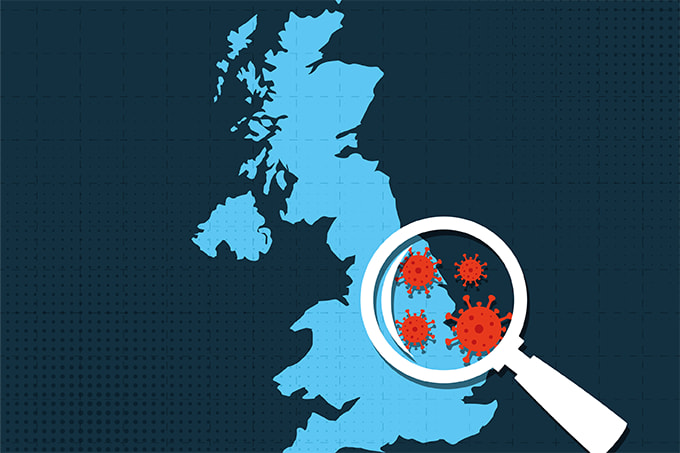Nearly two years into the COVID-19 pandemic, rapid antigen tests are finally gaining traction in the US. There is a clear demand for rapid turnaround in repeated testing to slow the spread of SARS-CoV-2. Though antigen tests have been branded as inferior to PCR tests since the pandemic began (largely due to their lower sensitivity), we are finally beginning to recognize the significant advantages of receiving a diagnosis in minutes rather than days – and the positive ramifications this has on people’s everyday lives. By the end of 2021, the White House spent US$3 billion on rapid antigen testing manufacturing. Following the example of countries that have shown evidence of the beneficial impacts of community testing – such as a substantial reduction in COVID-19 hospitalizations in the UK – the Biden administration also plans to give out a total of one billion free home test kits to individuals.
The lateral flow-based antigen testing is “decentralized” owing to its ease of use and lack of dependency on additional instruments. It offers disease control and prevention opportunities for travel, work, schools, congregate housing, and public gatherings such as concerts and conferences. There is at least one rapid antigen testing station in each major airport, mobile testing sites can be spotted in company parking lots, and school nurses are trained to perform rapid tests. During a recent international trip, I packed a home COVID-19 test in my luggage – allowing me to test myself in my hotel room and obtain the negative result required for re-entry without having to locate a testing station abroad.

As someone who has received training on the management of infectious pathogens, I appreciate the convenience and timeliness of rapid antigen tests, but there are some elements that I find worrisome – and that might result in a significantly increased infection risk.
A major concern with COVID-19 is that it can be transmitted through the air. To prevent this, PCR testing labs have implemented several safety procedures for processing samples – including the use of inactivating transport media, a heat inactivation step, and the use of biosafety cabinets for sample processing to create an air barrier between specimen and operator. These precautions have been built into each lab’s workflow to prevent contamination and protect operators from highly transmissive viruses. But most antigen tests don’t inactivate the virus and specialized protective laboratory equipment is unavailable in most rapid testing settings.
In addition, antigen tests – unlike PCR testing, which takes place in a controlled environment – are conducted in an open-face format comparable to pregnancy checks. This implies that test operators are frequently exposed to aerosolized, highly infectious SARS-CoV-2 samples, because those who use antigen tests could be symptomatic with high viral titer. What’s more, test operators may not have extensive experience dealing with pathogens and infectious diseases; they might be school nurses or airport employees. If staff members do not have expertise in handling high-volume testing and properly cleaning and maintaining equipment, the risks of transmission and cross-contamination are much higher. To handle high-volume antigen tests appropriately, additional training and implementation of risk-based standard operating procedures are sorely needed.
Another issue with at-home COVID-19 testing is waste management. My self-administered COVID-19 test took me roughly 20 minutes to complete – but I was stuck with the used test card for the next two hours, determined to find the right way to dispose of what should be considered potentially infectious waste. Because there was no guidance on the test insert about proper disposal, I looked to the Centers for Disease Control, which recommends discarding the card in a biohazardous waste container – not something I could easily find in my hotel room. I decided to double-bag my used test kits and toss them in the regular trash after reading multiple articles with conflicting information (and was only comfortable doing so because of my negative result). The absence of instruction on how to properly dispose of used COVID-19 tests poses a significant and avoidable hazard for those who may encounter potentially infectious waste, such as trash collection and hospitality staff. Test producers and the authorities must collaborate to offer training on the proper disposal of used home tests.
To conclude, antigen tests present unique safety challenges. Because of the emergence of highly transmissible variants such as Omicron, it is important to consider all stakeholders and implement procedures to reduce the risk of exposure as antigen test use increases. This includes training on proper handling techniques, cleaning equipment after use (including disinfecting surfaces), disposal guidance, and more. Furthermore, before conducting any tests, it is critical to use transport media that prevents viral particles from being transmitted, which could further minimize the threat.





